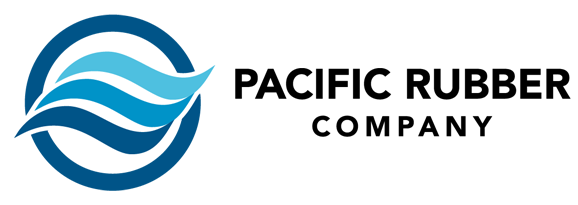Mil Specifications
Military specifications play a crucial role in shaping the rubber industry, ensuring the production of high-quality and reliable rubber products that meet the demanding requirements of defense applications. These specifications encompass a wide range of rubber-based components, from gaskets and seals to tires and protective gear, all of which are vital for military vehicles, equipment, and personnel. The military’s emphasis on durability, resilience, and performance under extreme conditions drives the rubber industry to develop cutting-edge materials and manufacturing processes.
Meeting military specifications necessitates rigorous testing and adherence to strict guidelines. Manufacturers must demonstrate that their rubber products can withstand harsh environments, such as extreme temperatures, chemical exposure, and mechanical stress. These specifications not only enhance the overall performance of military equipment but also contribute to the safety and effectiveness of military operations. Rubber used in military applications must exhibit qualities such as resistance to chemical agents, UV radiation, and ozone degradation, ensuring that equipment remains operational and reliable throughout its intended lifespan.
The collaboration between the military and the rubber industry is a two-way street. While the military sets the standards, the rubber industry’s innovation and research efforts continuously push the boundaries of what’s possible. As advancements in materials science, nanotechnology, and manufacturing techniques emerge, the rubber industry can create products that exceed existing military specifications, enhancing the overall capabilities of defense systems. Additionally, the knowledge gained from meeting stringent military requirements often trickles down to benefit civilian applications, leading to safer and more durable consumer goods.
In recent years, the rubber industry has embraced sustainable practices in line with military specifications. The development of eco-friendly rubber compounds, recycling methods, and environmentally responsible manufacturing processes aligns with both the military’s need for responsible resource management and global efforts towards a greener future. As military specifications evolve to encompass not only performance but also sustainability criteria, the rubber industry adapts to ensure that its products contribute to both national security and the well-being of the planet.
- Viton/FKM
MIL-R-83248, Class 1 Type 1, 75 Shore
MIL-R-83248, Class 1 Type 2, 75 Shore
MIL-R-83248, Class 2 Type 1, 90 Shore
MIL-R-83248, Class 2 Type 2, 90 Shore
- Nitrile
MIL-R-3065, SB 410 A,B,F, 40 Shore
MIL-R-3065, SB 515 A,B,C, 50 Shore
MIL-R-3065, SB 615 A,B,C, F, 60 Shore
MIL-R-3065, SB 715 A,B,F, 70 Shore
MIL-R-3065, SB 815 A,B,F, 80 Shore
MIL-R-7365, Type 1/2, 70 Shore
MIL-R-2765, 50 Shore
MIL-G-19769, 70 Shore
MIL-G-21610, 60 Shore
MIL-R-3533, Type 2 Grade B, 70 Shore
MIL-P-2693, A, 70 Shore
MIL-PRF-1149, Type 1 Class 5, 50 Shore
MIL-PRF-1149, Type 2 Class 5, 65 Shore
MIL-PRF-15624, Class 3, 50 Shore
MIL-R-6855, Class 1, 40 – 80 Shore
MIL-DTL-85052/1C, 70 Shore
- EPDM
MIL-R-900, 45 Shore
MIL-G-22050, Grade 2, 80 Shore
MIL-R-14328, 50 Shore
MIL-R-83285, 60 Shore
MIL-R-3065, RS 310, 30 Shore
MIL-R-3065, RS 410, 40 Shore
MIL-R-3065, RS 515, 50 Shore
MIL-R-3065, RS 615, 60 Shore
MIL-R-3065, RS 715, 70 Shore
MIL-R-3065, RS 815, 80 Shore
- Neoprene
MIL-R-3065, SC 310, 30 Shore
MIL-R-3065, SC 415, 40 Shore
MIL-R-3065, SC 515, 50 Shore
MIL-R-3065, SC 615 F, 60 Shore
MIL-R-3065, SC 715, 70 Shore
MIL-R-3065, SC 810, 80 Shore
MIL-I-3930, JNL, 60 Shore
MIL-PRF-1149, Type 1 Class 1, 50 Shore
MIL-PRF-1149, Type 2 Class 1, 65 Shore
MIL-PRF-15624, Class 1, 50 Shore
MIL-R-6855, Class 2 A/B, 40 – 80 Shore
- Natural Rubber
MIL-R-3065, RN 315, 40 Shore
MIL-R-3065, RN 420, 50 Shore
MIL-R-3065, RN 520, 60 Shore
MIL-R-3065, RN 635, 70 Shore
MIL-R-3065, RN 720, 80 Shore
- SBR
MIL-PRF-1149, Type 1 Class 2, 50 Shore
MIL-PRF-1149, Type 2 Class 2, 65 Shore
MIL-PRF-15624, Class 2, 50 Shore
MIL-R-6855, Class 2A/B, 40 Shore
MIL-R-6855, Class 2A/B, 50 Shore
MIL-R-6855, Class 2A/B, 60 Shore
MIL-R-6855, Class 2A/B, 70 Shore
MIL-R-6855, Class 2A/B, 80 Shore
We are positioned to provide affordable solutions for long or short runs thanks to our flexible molding production capabilities and custom rubber compositions. To fully comprehend their difficulties and offer them specialized solutions, we collaborate closely with our customers. To kickstart your production, we also provide help with tool design.
Common Name:
Molded Slabs (FINISH)
Generally Resistant To:
Moderate Chemicals and Acids, Ozone, Oils, Fats, Greases, and Solvents
ASTM D 2000 / SAE J200 Classification:
BC, BE
Chemical Name:
Polychloroprene
Generally Attacked By:
Esters, Ketones, Chloronated, Aromatic and Nitro Hydrocarbons
MIL-R-3065 / SAE J-14 / MIL-STD-417 Classification:
SC
ASTM D-1418 Designation:
CR
Elongation:
100% to 800%
Hardness Range (Durometer Shore A):
20 to 95
Compression Set:
Good
Abrasion Resistance:
Very Good to Excellent
Impact Resistance:
Good to Excellent
Rebound Rating:
Fair to Very Good
Tear Resistance:
Good
Flame Resistance:
Very Good to Excellent
Flex Cracking Resistance:
Good to Very Good
Minimum Service Temperature:
-30°F to -70°F
Maximum Service Temperature:
+220°F to +280°F
Recommended Shelf Life:
5 to 10 years
Ozone Resistance:
Good
Steam Resistance:
Poor to Good
Weather Resistance:
Poor to Good
Oxidization Resistance:
Good
Gas Permeability:
Fair to Good
Sunlight Resistance:
Good to Very Good
Water Resistance:
Excellent
Radiation Resistance:
Good, 1 x 105 Ga Gy
Poor, 9 x 105 Ga Gy
Acetone:
Minor to Moderate Effect
Amonium Hydroxide:
Recommended: Little to Minor Effect
Animal Fats:
Minor to Moderate Effect
Carbon Dioxide:
Minor to Moderate Effect
Chlorine:
DRY: Moderate to Severe Effect
WET: NOT RECOMMENDED
Fluorine (Liquid):
– – –
Fuel Oil:
Minor to Moderate Effect
Gasoline:
Minor to Moderate Effect
Hydrochloric Acid 37%:
HOT: NOT RECOMMENDED
COLD: Minor to Moderate Effect
Hydrochloric Acid Concentrate 37%:
HOT: NOT RECOMMENDED
COLD: Minor to Moderate Effect
Kerosene:
Moderate to Severe Effect
Methyl Ethyl Ketone:
NOT RECOMMENDED
Mineral Oil:
Minor to Moderate Effect
Naptha:
Moderate to Severe Effect
Natural Gas:
RECOMMENDED: Little or Minor Effect
Nitric Acid:
Concentrate: Moderate to Severe Effect
Dillute: RECOMMENDED: Little or Minor Effect
Red Fuming: Minor to Moderate Effect
Petroleum:
Below 250: Minor to Moderate Effect
Above 250: NOT RECOMMENDED
Phosphoric Acid:
20%: Minor to Moderate Effect
45%: Minor to Moderate Effect
Propane:
NOT RECOMMENDED
Salt Water:
RECOMMENDED: Little or Minor Effect
Skydrol:
Skydrol 500: NOT RECOMMENDED
Skydrol 7000: NOT RECOMMENDED
Sodium Hydroxide:
RECOMMENDED: Little or Minor Effect
Sulfuric Acid:
Concentrate: NOT RECOMMENDED
Dillute: Minor to Moderate Effect
20% Oleum: NOT RECOMMENDED
Toluene:
NOT RECOMMENDED
Transformer Oil:
Minor to Moderate Effect
Vegetable Oils:
Minor to Moderate Effect
Vinegar:
RECOMMENDED: Little or Minor Effect
- Actual shelf life could vary dramatically based on storage conditions
- Store in a cool, dry place with temperature below 75°F
- Keep away from direct heat or open flames
- Avoid contact with solvents or other fluids
- Do not store in direct sunlight
- Keep products wrapped or sealed to minimize the absorption of moisture
- Store in a relaxed condition free from tension, compression or other deformation
See Rubber Storage Conditions for more information about how to properly store your rubber products.

